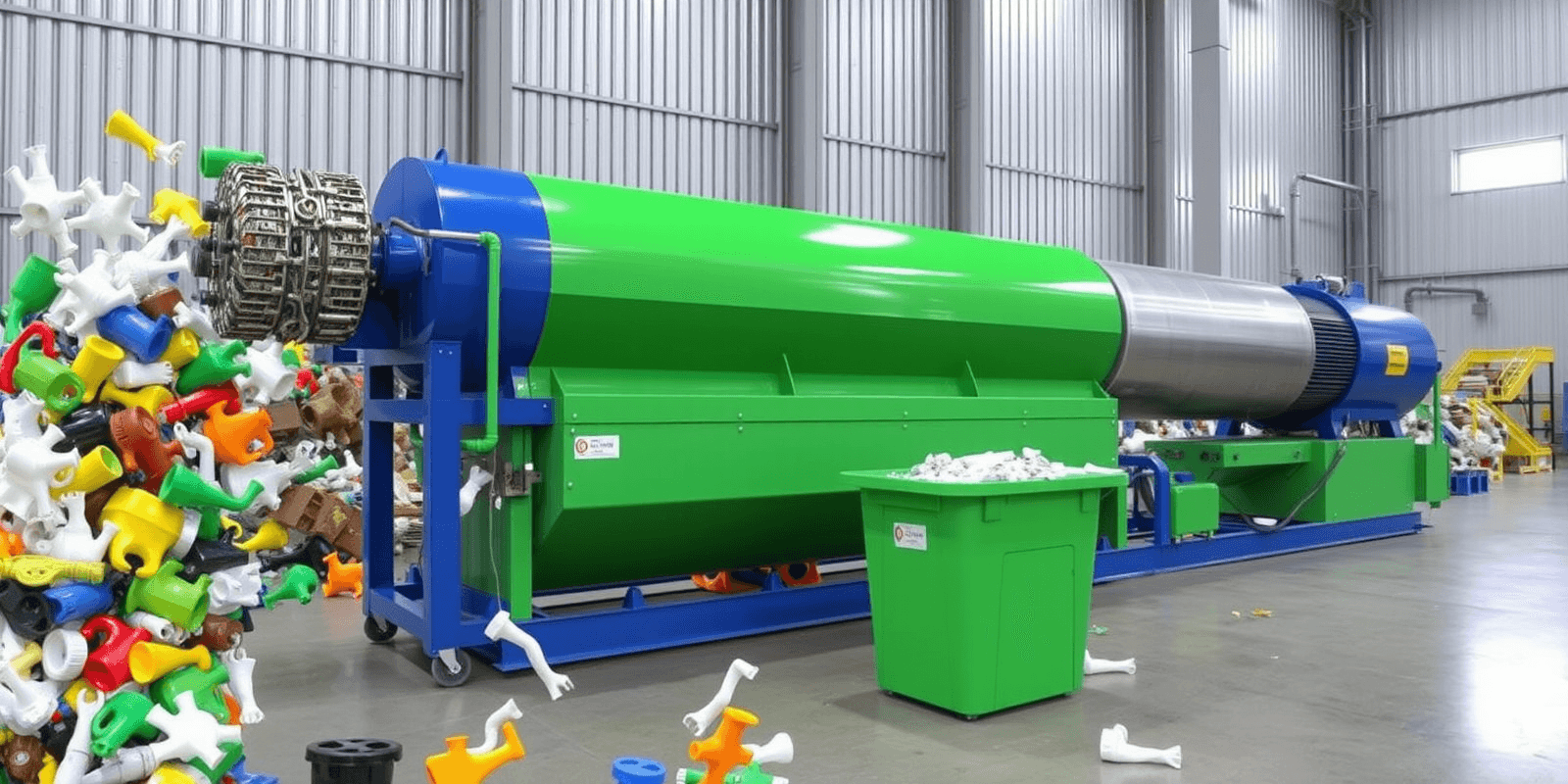Physical Address
304 North Cardinal St.
Dorchester Center, MA 02124
Physical Address
304 North Cardinal St.
Dorchester Center, MA 02124

As the world grapples with the environmental challenges posed by plastic waste, innovative solutions are emerging to address this pressing issue. One such solution is the use of plastic granulator for recycling waste plastic. These machines play a crucial role in transforming discarded plastic materials into valuable resources, contributing to a more sustainable and circular economy. In this article, we will explore the latest advancements in plastic granulator technology, their environmental benefits, and future trends in the recycling industry.
A plastic granulator for recycling waste plastic is a machine designed to break down large pieces of plastic into smaller, uniform granules. This process, known as granulation, is a critical step in the recycling chain, as it prepares the plastic for further processing and reuse. The granules produced can be used in various applications, from manufacturing new plastic products to creating composite materials.
Plastic granulators operate by feeding plastic waste into a hopper, where it is then cut into smaller pieces by a series of rotating blades. The size and shape of the granules can be adjusted based on the specific requirements of the end product. Modern plastic granulators are equipped with advanced features such as variable speed drives, dust collection systems, and automated controls, which enhance their efficiency and reduce operational costs.
The use of plastic granulator for recycling waste plastic offers several environmental benefits. By converting waste plastic into reusable granules, these machines help reduce the amount of plastic that ends up in landfills and oceans. This not only conserves natural resources but also reduces the carbon footprint associated with the production of new plastic. Additionally, the energy required to produce recycled plastic is significantly lower than that needed for virgin plastic, making it a more sustainable option.
Recent advancements in plastic granulator technology have focused on improving the efficiency and performance of these machines. For example, some models now feature high-speed cutting blades that can process larger volumes of plastic at a faster rate. Others incorporate smart sensors and IoT (Internet of Things) technology to monitor and optimize the granulation process in real-time, ensuring consistent quality and reducing downtime.
Safety and maintenance are also key areas of improvement in modern plastic granulators. Many new models come with safety features such as automatic shut-off mechanisms and emergency stop buttons to prevent accidents. Additionally, modular designs and easy-to-clean components make maintenance more straightforward, reducing the overall cost of ownership and extending the lifespan of the equipment.
One of the most promising trends in the recycling industry is the integration of plastic granulators with other recycling technologies. For instance, combining granulation with processes like washing, drying, and sorting can create a more efficient and comprehensive recycling system. This integrated approach not only improves the quality of the recycled material but also enhances the overall sustainability of the recycling process.
The concept of a circular economy, where waste is minimized and resources are continuously reused, is gaining traction globally. As part of this shift, there is a growing emphasis on developing and implementing technologies that support the circular economy. Plastic granulator for recycling waste plastic plays a vital role in this transition by enabling the continuous recycling and reuse of plastic materials.
The use of plastic granulator for recycling waste plastic is a powerful tool in the fight against plastic pollution. By transforming waste plastic into valuable resources, these machines contribute to a more sustainable and circular economy. With ongoing advancements in technology and a growing focus on environmental sustainability, the future of the recycling industry looks promising. As we continue to innovate and improve, plastic granulators will remain a key component in our efforts to create a cleaner, greener planet.